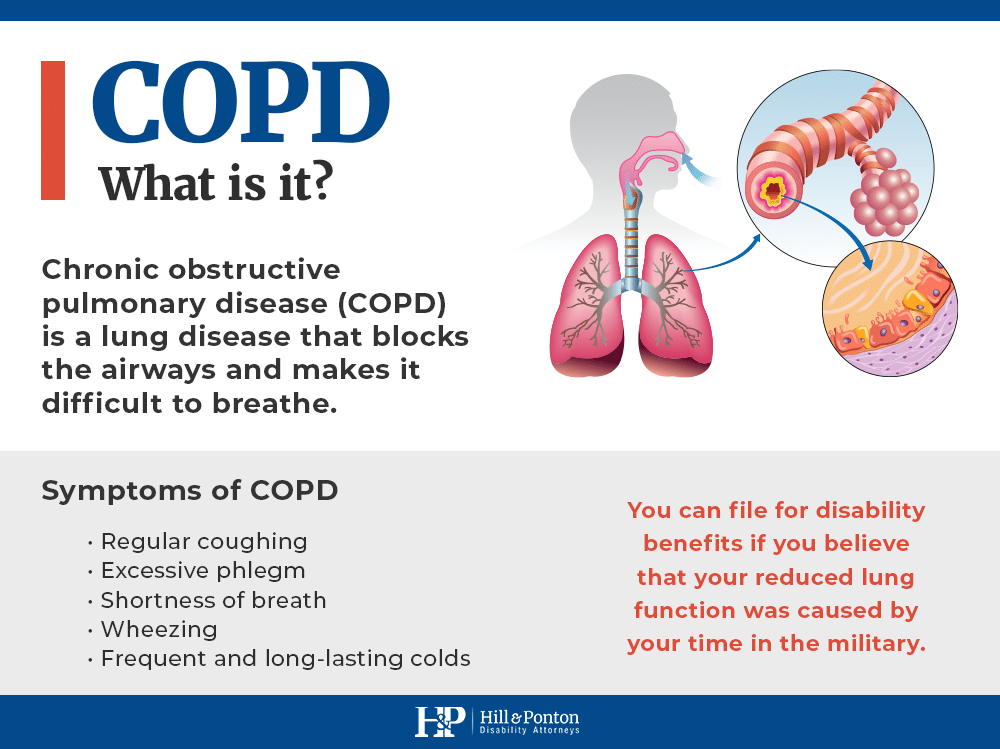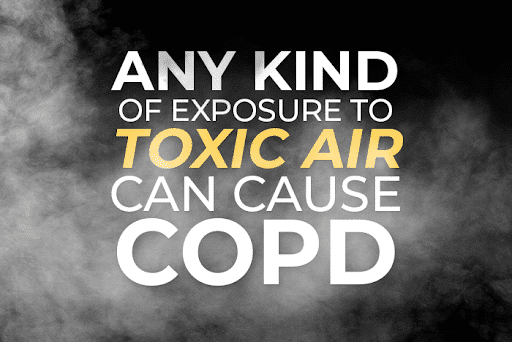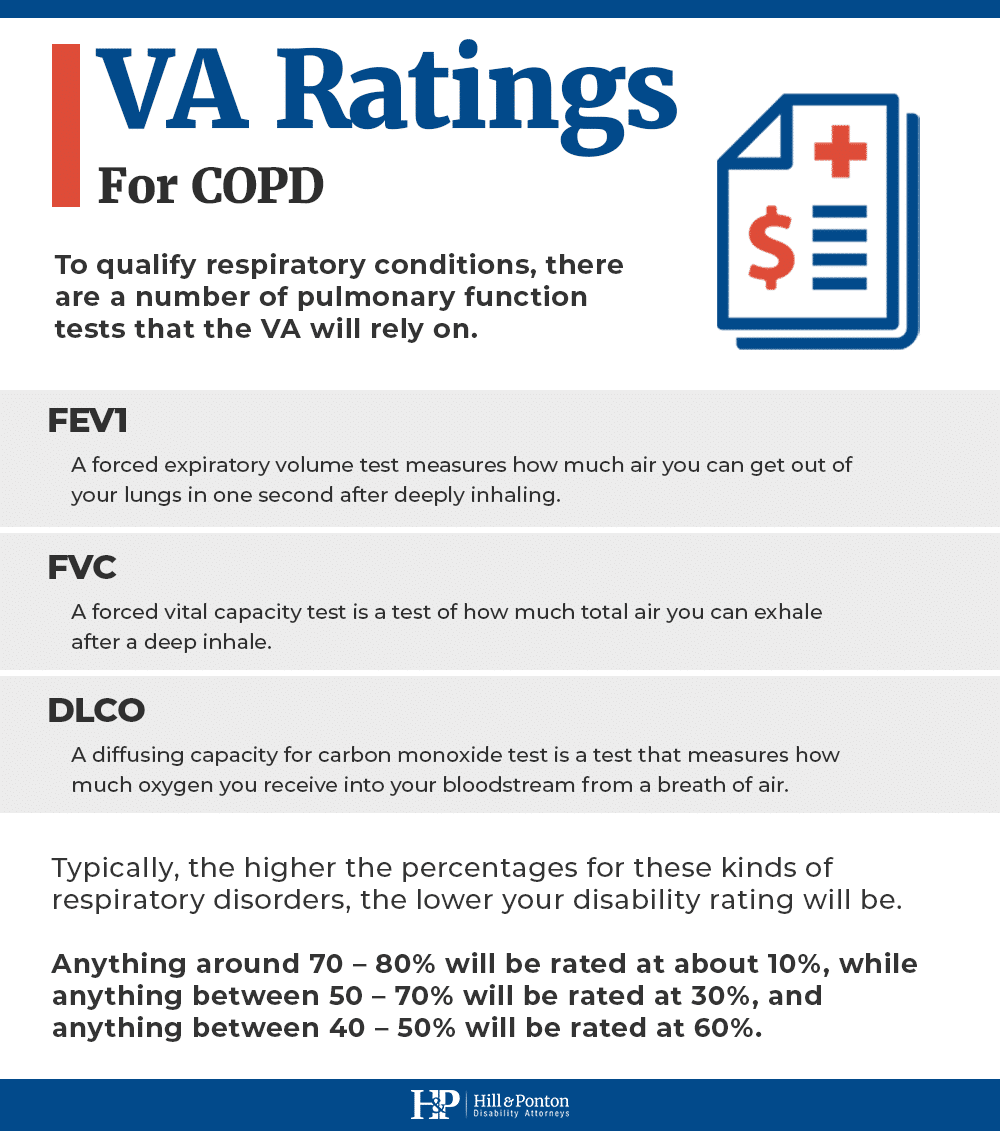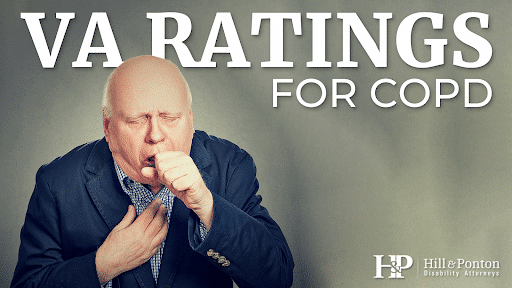Chronic obstructive pulmonary disease (COPD) is a lung disease that blocks the airways and makes it difficult to breathe. It causes the tubes and air sacs of the respiratory system to lose their elasticity, which causes them to expand and then traps some of the air in the lungs. The main cause of this respiratory failure is usually smoking, but diffusion capacity can also occur when people are exposed to harmful fumes in poorly ventilated areas or from bacterial infections.
The main symptoms for COPD include:
- Regular coughing
- Excessive phlegm
- Shortness of breath
- Wheezing
- Frequent and long-lasting colds
While it might be normal to be winded if you’re not used to physical exercise, someone with COPD will become short of breath even with simple chores. This condition is fairly common in terms of lung disorders, however it may be mistaken for chronic bronchitis, asthma, interstitial lung disease, or even lung cancer. You can file for disability benefits if you believe that your reduced lung function was caused by your time in the military.

Service Connection for COPD
Any kind of exposure to toxic air can cause COPD, so if you were exposed to gas, particulate matter, or Agent Orange during the service, you may be able to file for disability. Those who served in Afghanistan or Iraq may have been especially likely to file for VA disability benefits as they may have been asked to work near open-air or burn pits.
The military will take into account the Code of Federal Regulations (C.F.R.) as well as the diagnostic codes and disability compensation recommendations before assigning a VA disability rating for a service connection. The right law firm can help you show that your reduced oxygen consumption and maximum exercise capacity are making it difficult for you to earn a living for yourself and your family.
If you are filing for disability for COPD, you’ll need the following documents:
- A description of how you came to be exposed to the chemicals that caused your COPD
- A recent diagnosis of COPD from a qualified medical professional
- A letter (medical nexus) from your doctor that confirms your COPD was directly related to being in the military
Your COPD does not need to be caused by direct orders in the military. For example, even if you weren’t asked to work at the burn pits but did sleep nearby, you would still have the right to file for disability.

Secondary Service Connection for COPD
A secondary service connection for COPD is anything that would have developed from a primary service connection. For COPD, it’s may have been anything from an infection to a mental disorder that would lead to the condition.
For example, if you developed PTSD directly because of your time in the military, the stress might have led you to take up smoking to calm your nerves. The military does allow you to make the connection if your smoking led to COPD. If you choose to file a disability claim for this, you would need the same documents as you would for the primary connection.
As in a primary condition, your description will have to show how one event was connected to the other. You’ll also need the medical nexus from your doctor or medical professional to prove that they agree with your chain of logic.
There is no statute of limitations when it comes to secondary service connections, meaning that you can still apply even if the primary condition occurred 40 years ago. Other common secondary disorders may include sleep apnea,
Compensation & Pension (C&P) Exams for COPD
The first step of filing for disability is to hand over all of your paperwork to the VA Regional Office (RO). The committee will review it and most likely order a Compensation & Pension (C&P) exam.
This exam is not meant to cure your COPD or even treat it. It’s performed by a VA doctor who will review your claim. They’ll evaluate and verify your test results, symptoms, and the most likely cause of your condition. The VA doctor will likely perform many of the same procedures as your primary physician. They might also make recommendations, such as using a bronchodilator to increase the capacity of the lung, oxygen therapy, or cardiac catheterization.
In some cases, the VA doctor will not agree with your primary or diagnosing physician. They may believe that you either have a different condition, such as pulmonary hypertension, bronchiectasis, or heart failure. Or they might decide that your COPD was not caused by your time in the military. The VA doctor may argue that COPD is a secondary condition rather a primary one.
Should you want to contest the VA doctor’s conclusions, you can do so through the Appeals Modernization Act (AMA). You have three avenues to take in this case:
- Request another person at the RO to look at the evidence
- Request a higher authority than the RO look at the evidence
- Collect new evidence and submit it to the RO (e.g., a new X-ray, carbon dioxide labs, etc.)
If you’re asking for someone else to review the case, the idea is that it will be handed off to a different person, one with more experience in lung disorders. If you’re gathering new evidence, you’ll need to ensure that it’s supporting your claims. Talking to your primary physician or disability lawyer can make it easier to decide which evidence will help your case.

How does the VA Rate COPD?
The VA is essentially looking at how long it takes for you to breathe, how much air you’re inhaling, how much air you’re exhaling, and how well you can exercise due to COPD. To qualify respiratory conditions, there are a number of pulmonary function tests that the VA will rely on.
The FEV1 (forced expiratory volume) test measures how much air you can get out of your lungs in one second after deeply inhaling. The FVC (forced vital capacity) is a test of how much total air you can exhale after a deep inhale (generally measured through spirometry). They may also consider your diffusing capacity for carbon monoxide (DLCO), a test that measures how much oxygen you receive into your bloodstream from a breath of air.
Typically, the higher the percentages for these kinds of respiratory disorders, the lower your disability rating will be. Anything around 70 – 80% will be rated at about 10%, while anything between 50 – 70% will be rated at 30%, and anything between 40 – 50% will be rated at 60%.
Many people who apply for COPD disability will have other coexisting conditions, such as bronchitis. The VA will assign different values to different service-related conditions and then add those values together to determine the total amount of your compensation package. How each one is rated will depend on both the severity and its impact on your ability to work.
TDIU for COPD
Total Disability based on Individual Unemployability (TDIU) is a percent rating of 100 from the United States Department of Veterans Affairs. VA claims often rely on more than one condition to reach this number, and COPD can be used to raise your percentage. You might also use a social security disability evaluation as a way to receive additional compensation. A good disability lawyer can show you how to maximize your veterans disability, especially if the exacerbations of COPD are interfering with your quality of life.




